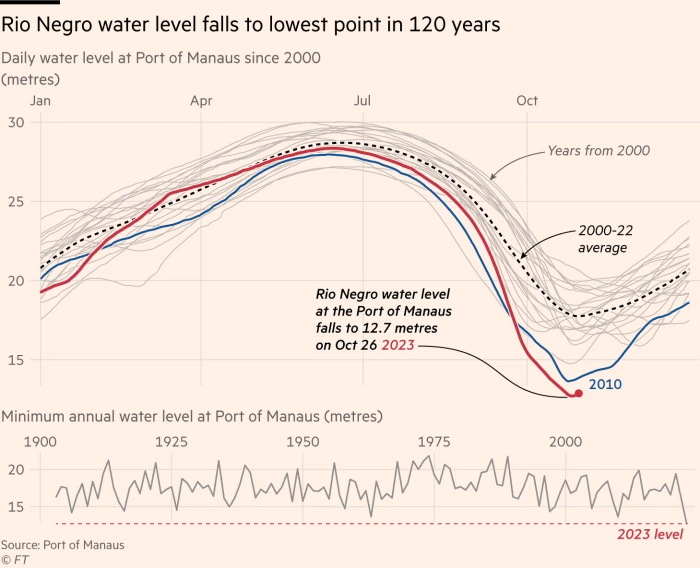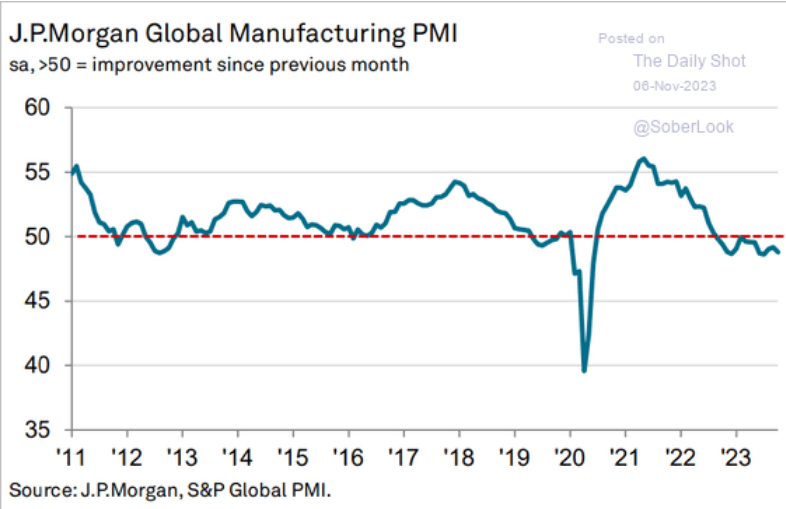November 6, 2023
Drought
After reading all the news today, have a look at the drought in Latin America.
El Niño is creating a very bad situation exacerbated by climate change.
Drought and extremely high temperatures are pushing the forests to their limit. Already, many areas of the Amazon are releasing more CO2 than they are capturing.
All of the largest rivers in the Amazon, including the Rio Negro, are at record lows.
This impacts more than just the forest.
- Dry forests and deforestation mean less water being evaporated into local clouds.
- Less rain means that the rivers dry-up.
- Dry rivers reduce hydro power.
-
Most of this area of Latin America relies on hydro power for its electricity generation.
- Ecuador has a 650-megawatt deficit due to low-producing hydro-electric plants
- Colombia had to send energy to Ecuador
- Rivers are the main transport infrastructure for the region as well.
Dry rivers lead to dry forests, which leads to fires and tree death, which leads to CO2 emissions.
A UK-Brazil study from 2021 found that droughts and fires resulting from the 2015-16 El Niño caused the death of more than 2.5bn trees and woody vines and the release of almost 500mn tonnes of carbon dioxide emissions. Last month was the worst October for fires in Amazonas state since records began 25 years ago, with more than 3,400 blazes reported, according to the state government.
(FT)

Global economic manufacturing activity continues declines
While the USA is pushing forward with government spending-driven growth (is there another kind, really?), the rest of the world is struggling to provide a basis for investment.
Declines in production are near universal as most companies look to much slower growth and higher (for longer) debt costs. More of the corporate world will see debt roll-over to higher interest rates next year and in 2025.
Higher interest rates for longer means that we are going to be facing slow economic growth for a year or more at least.
It is looking more and more like we are in an economic depression, not just a recession.
